BigChilli's agony aunt Anette Pollner is more than just a good listener and provider of sound advice. She is also a professional opera director, and the opera is her first and lifelong love. Still buzzing from her recent successful production of "Who is Afraid of the Opera" with the Bangkok Music Society, here she tells us what it's like to direct a performance and lifts the lid on the city's fledgling opera scene (Photography by John Beara)
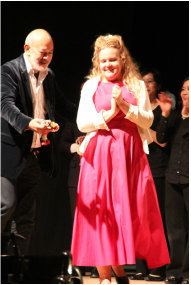
You recently directed ‘Who is Afraid of the Opera’ for the Bangkok Music Society. Can you tell us a little bit about it?
That production, with the largest audience the BMS has ever seen, was a real labour of love. Conductor Eugene Eustaquio asked me in November 2011 to create a fully staged opera evening with a large chorus. I decided to tell the story of ghosts and supernatural beings in the opera. For five months I worked with the BMS chorus and soloists to realise that vision on stage, including numbers from Wagner’s ‘Flying Dutchman,’ Verdi’s ‘Macbeth’ and various glorious musical numbers which the BMS performers excelled at. It was a time of passion and delight, and it was one of the happiest productions I’ve ever been involved in. People in the audience commented on the extraordinary energy on that stage. You can see I am still in love...
That production, with the largest audience the BMS has ever seen, was a real labour of love. Conductor Eugene Eustaquio asked me in November 2011 to create a fully staged opera evening with a large chorus. I decided to tell the story of ghosts and supernatural beings in the opera. For five months I worked with the BMS chorus and soloists to realise that vision on stage, including numbers from Wagner’s ‘Flying Dutchman,’ Verdi’s ‘Macbeth’ and various glorious musical numbers which the BMS performers excelled at. It was a time of passion and delight, and it was one of the happiest productions I’ve ever been involved in. People in the audience commented on the extraordinary energy on that stage. You can see I am still in love...
What is it like to direct an opera?
Have you ever tried to fly a spaceship? No? That’s the only experience I can think of that would even come close to directing an opera.
Imagine: you have the most emotional and sophisticated music, the most outrageous plots, wild, romantic, larger than life characters... and you have the privilege to take them to a new world. Oh, and first you have to create that new world, built on the foundations of music.
But the vision is only the starting point. What makes a good director is how she translates that vision into the reality of the stage. Opera productions combine the talents of many musicians, singers, dancers, visual artists and support staff. A hundred people (or more) build on the director’s vision and add their own creativity. Her vision will be realised by others. Scary.
How do you get them to do that?
Well, that’s the secret.
Can you tell us? Or is it one of those secrets that can only be revealed to a select inner circle?
Like some kind of secret order of directors? Luckily, no. Directors are notoriously difficult at getting on with each other and such an order would be doomed from the start. It’s actually less a secret than a complex, ancient and very contemporary craft. Basically, we translate the vision many times, for the conductor, for the performers, for the visual designers, and so on and we try to make sure that the core of the vision shines through all those transformations.
Have you ever tried to fly a spaceship? No? That’s the only experience I can think of that would even come close to directing an opera.
Imagine: you have the most emotional and sophisticated music, the most outrageous plots, wild, romantic, larger than life characters... and you have the privilege to take them to a new world. Oh, and first you have to create that new world, built on the foundations of music.
But the vision is only the starting point. What makes a good director is how she translates that vision into the reality of the stage. Opera productions combine the talents of many musicians, singers, dancers, visual artists and support staff. A hundred people (or more) build on the director’s vision and add their own creativity. Her vision will be realised by others. Scary.
How do you get them to do that?
Well, that’s the secret.
Can you tell us? Or is it one of those secrets that can only be revealed to a select inner circle?
Like some kind of secret order of directors? Luckily, no. Directors are notoriously difficult at getting on with each other and such an order would be doomed from the start. It’s actually less a secret than a complex, ancient and very contemporary craft. Basically, we translate the vision many times, for the conductor, for the performers, for the visual designers, and so on and we try to make sure that the core of the vision shines through all those transformations.
So it’s a collaborative craft?
Up to a point. It’s completely collaborative between the director and the conductor, but with everyone else the director is the visionary, the coach, the motivator and the final quality control. Directing an opera requires focused leadership, split second decisions, never losing the overview and transmitting your passion fiercely and without holding anything back. So I guess it’s being a lover, too. With all the emotional rollercoasters.
Are there a lot of female opera directors?
No. Having said that, it’s a lot better than when I started out a few decades ago but the opera world is still very much ruled by old men. That will change, of course.
So women like you were kind of pioneers?
Yes, we were I suppose. Like all pioneers, our lives were pretty uncomfortable most of the time and we slept out in the cold a lot (I am saying this so flippantly but there are quite a few tragic stories behind that) but it’s a good feeling to be part of history, however humbly in my case.
What is your favourite bit of an opera production?
Do I have to say? I love them all. The vision is glorious although it also makes me anxious because it’s out of my control. The rehearsals are exciting, demanding, they challenge me on every level, intellectually, emotionally, and also physically since I literally run around for several hours at a time, and I believe I even jump up and down a fair bit. The final stage when it all comes together with the costumes, the stage, the light.
When did you first discover opera? What is it about opera that you love?
I saw my first opera, Wagner’s ‘Flying Dutchman’, a romantic and very erotic ghost story, at the age of 12 in the Munich State Opera House. I fell in love immediately and forever. Directing plays without music is wonderful, too, but the music allows you to put your inner world of dreams directly onto the stage.
Up to a point. It’s completely collaborative between the director and the conductor, but with everyone else the director is the visionary, the coach, the motivator and the final quality control. Directing an opera requires focused leadership, split second decisions, never losing the overview and transmitting your passion fiercely and without holding anything back. So I guess it’s being a lover, too. With all the emotional rollercoasters.
Are there a lot of female opera directors?
No. Having said that, it’s a lot better than when I started out a few decades ago but the opera world is still very much ruled by old men. That will change, of course.
So women like you were kind of pioneers?
Yes, we were I suppose. Like all pioneers, our lives were pretty uncomfortable most of the time and we slept out in the cold a lot (I am saying this so flippantly but there are quite a few tragic stories behind that) but it’s a good feeling to be part of history, however humbly in my case.
What is your favourite bit of an opera production?
Do I have to say? I love them all. The vision is glorious although it also makes me anxious because it’s out of my control. The rehearsals are exciting, demanding, they challenge me on every level, intellectually, emotionally, and also physically since I literally run around for several hours at a time, and I believe I even jump up and down a fair bit. The final stage when it all comes together with the costumes, the stage, the light.
When did you first discover opera? What is it about opera that you love?
I saw my first opera, Wagner’s ‘Flying Dutchman’, a romantic and very erotic ghost story, at the age of 12 in the Munich State Opera House. I fell in love immediately and forever. Directing plays without music is wonderful, too, but the music allows you to put your inner world of dreams directly onto the stage.
How and when did you first get into directing?
I directed my first play at the age of 17. Later I attended the Max Reinhardt Seminar in Vienna and worked as a director in Germany and the UK. In 2003, when I was backpacking round the world for a year, the Bangkok Opera (now Opera Siam) gave me the opportunity to direct Puccini’s ‘Turandot,’ a life changing experience for many of us.
Two particularly wonderful things have happened to me in Bangkok as a director: I got a chance to direct large groups, including the 60+ chorus in ‘Turandot’ that contained many talented Thai voice students who are now internationally successful soloists – I even gave the first solo role of his career to leading Thai Baritone Kittinant Chins! – and most recently the opera chorus of the Bangkok Music Society for ‘Who is afraid of the opera,’ a program celebrating the chorus and its journey from Wagner to modern musicals.
Many directors fear working with a large chorus, and with good reason. Even if you just put the singers into groups and move them around in geometrical shapes like pawns before your majestic eye, it takes considerable discipline and overview. But if you, like me, make every singer in the chorus into a soloist, and create ensemble scenes that tell the stories of so many people simultaneously, you need a lot of imagination, energy and extra rehearsal time.
I was as scared as anyone and opera productions are always an excellent weight loss program anyway. But now I realise that this is indeed the holy grail of directing: being present with everyone, encouraging people to grow out of their comfort zone to become a singing, acting, dancing magical creature, and never losing sight of how the scene, the text, the music, are shaping themselves into living theatre and interaction with the audience – I can’t think of many experiences in life that are as intense, challenging and exhilarating except perhaps commanding a spaceship. For which directing operas would be an excellent training.
And that’s not all… The ultimate experience is seeing your work performed on stage in front of a live audience. How many people ever get to do this? It is ecstatic, and it is also very confronting. Many directors go and quietly throw up in the toilet while the show is running. Fortunately, in Bangkok, there is always something for the director to do even throughout the performance, helping with the lights, coordinating the often underprepared stage management, and running away from well wishers in the break. Stefan Sanchez, a fellow director in Bangkok, really endeared himself to me when he stopped one of his gala concerts to run out on stage to adjust the angle of a sofa – directing is precision work! And lines of vision make all the difference.
Another aspect of directing is managing the time. With ‘Who is afraid of the opera?’ we had three months preparation and five months rehearsals. Every week, conductor Eugene Eustaquio and I needed to meet certain milestones and to readjust our plans. The BMS worked with us beautifully. But I was the one who went to bed with the opera at night and got up with it in the morning, every day for five months.
What shows have you been involved in here in Bangkok?
Puccini’s ‘Turandot’ in 2004 and Wagner’s ‘Valkyrie’ in 2007 with the Bangkok Opera, two of the most difficult and most exciting operas in the classical canon, a bunch of smaller productions in 2008 – 2010, and ‘Who is afraid of the Opera?’ with the Bangkok Music Society in 2012.
I’ve also noticed that some of my artistic impulses have already been taken up by others in the opera scene – that is very flattering and would not happen so quickly elsewhere.
What are the biggest challenges you face when putting together a show in Bangkok, how do you overcome them?
In Bangkok I would say that the biggest challenge is the funding. Opera is expensive because it involves so many people. This is also creating a vibrant artistic community, so well worth the investment, but convincing investors is quite difficult here. However, I’m optimistic. Audiences are growing and people are going home enthusiastic and inspired.
I directed my first play at the age of 17. Later I attended the Max Reinhardt Seminar in Vienna and worked as a director in Germany and the UK. In 2003, when I was backpacking round the world for a year, the Bangkok Opera (now Opera Siam) gave me the opportunity to direct Puccini’s ‘Turandot,’ a life changing experience for many of us.
Two particularly wonderful things have happened to me in Bangkok as a director: I got a chance to direct large groups, including the 60+ chorus in ‘Turandot’ that contained many talented Thai voice students who are now internationally successful soloists – I even gave the first solo role of his career to leading Thai Baritone Kittinant Chins! – and most recently the opera chorus of the Bangkok Music Society for ‘Who is afraid of the opera,’ a program celebrating the chorus and its journey from Wagner to modern musicals.
Many directors fear working with a large chorus, and with good reason. Even if you just put the singers into groups and move them around in geometrical shapes like pawns before your majestic eye, it takes considerable discipline and overview. But if you, like me, make every singer in the chorus into a soloist, and create ensemble scenes that tell the stories of so many people simultaneously, you need a lot of imagination, energy and extra rehearsal time.
I was as scared as anyone and opera productions are always an excellent weight loss program anyway. But now I realise that this is indeed the holy grail of directing: being present with everyone, encouraging people to grow out of their comfort zone to become a singing, acting, dancing magical creature, and never losing sight of how the scene, the text, the music, are shaping themselves into living theatre and interaction with the audience – I can’t think of many experiences in life that are as intense, challenging and exhilarating except perhaps commanding a spaceship. For which directing operas would be an excellent training.
And that’s not all… The ultimate experience is seeing your work performed on stage in front of a live audience. How many people ever get to do this? It is ecstatic, and it is also very confronting. Many directors go and quietly throw up in the toilet while the show is running. Fortunately, in Bangkok, there is always something for the director to do even throughout the performance, helping with the lights, coordinating the often underprepared stage management, and running away from well wishers in the break. Stefan Sanchez, a fellow director in Bangkok, really endeared himself to me when he stopped one of his gala concerts to run out on stage to adjust the angle of a sofa – directing is precision work! And lines of vision make all the difference.
Another aspect of directing is managing the time. With ‘Who is afraid of the opera?’ we had three months preparation and five months rehearsals. Every week, conductor Eugene Eustaquio and I needed to meet certain milestones and to readjust our plans. The BMS worked with us beautifully. But I was the one who went to bed with the opera at night and got up with it in the morning, every day for five months.
What shows have you been involved in here in Bangkok?
Puccini’s ‘Turandot’ in 2004 and Wagner’s ‘Valkyrie’ in 2007 with the Bangkok Opera, two of the most difficult and most exciting operas in the classical canon, a bunch of smaller productions in 2008 – 2010, and ‘Who is afraid of the Opera?’ with the Bangkok Music Society in 2012.
I’ve also noticed that some of my artistic impulses have already been taken up by others in the opera scene – that is very flattering and would not happen so quickly elsewhere.
What are the biggest challenges you face when putting together a show in Bangkok, how do you overcome them?
In Bangkok I would say that the biggest challenge is the funding. Opera is expensive because it involves so many people. This is also creating a vibrant artistic community, so well worth the investment, but convincing investors is quite difficult here. However, I’m optimistic. Audiences are growing and people are going home enthusiastic and inspired.
Who are the big players in Bangkok's opera scene?
The one person who more or less created the current opera scene in Bangkok is Somtow Sucharitkul. He is a composer and conductor (and internationally famous science fiction writer!) who started the Bangkok Opera (now Opera Siam) with a production of his own opera ‘Madana’ in 2001 and has since put on many opera productions here. It is difficult to overestimate Somtow’s importance in the history of opera in Thailand. Most people have worked with him at some point, myself included.
A more recent addition is experienced European opera director Stefan Sanchez who has also worked with Somtow, and has now founded his ‘Bangkok Grand Opera,’ focused on nurturing very talented young Thai opera singers. In my view, the most exciting young opera director in Bangkok is Pattarasuda Anuman Rajadhon of ‘NUNi productions.’ She has a contemporary, very personal artistic vision and a superb command of the director’s craft in realizing that vision on stage. I’m looking forward to seeing more shows by all of these directors (and hopefully by many more...). I also want to direct many more shows myself.
Is the opera scene here healthy? Do Thais really have an appetite for opera?
Opera is exciting and exhilarating. And it could take off in Thailand in a big way if the funding situation improved. There are many young classical musicians and opera singers – and their fans – who could carry a lively opera scene right now. And classical music is really in fashion – in Europe the big concert organisers make more money from classical music and opera than from pop concerts.
How do you see Thailand's opera scene developing over the next few years?
I hope for more productions of all kinds, and especially for productions that can surprise me, challenge me, and take me to new worlds that I never knew existed. I want every opera ticket to be a ticket on that spaceship.
Bangkok has the artistic talent and growing audiences for opera. What it doesn’t have, and what would make all the difference to all of us would be an opera house in central Bangkok (there’s one in Hanoi and one in Kuala Lumpur!) that could also be used for large theatre productions. Maybe that will come.
Can we expect to see you directing any performances in the near future?
It is always difficult to put an opera production together in Bangkok which is why all the above directors have founded their own companies. I am not a producer myself, I’m a director who gets hired by others, but right now I am in the early planning stages of a large scale musical theatre event for 2014 that is very different from anything Bangkok (and in fact, the region) has seen so far. I believe in long preparation times and the right balance between passion and precision. That’s what I learned from Wagner at the age of 12.
What would you like to tell people who have never been to the opera?
Well, of course, you should have come to ‘Who is Afraid of the Opera?’ It was perfect for converting your fears into enthusiasm. But failing that (although the BMS will put out video clips from the production this autumn on YouTube, the first one, ‘Va pensiero,’ for the anniversary of the flood), go to the opera with an open mind. Don’t assume it’s stuffy or like a museum, and don’t think you’ll be bored. Opera is the most exciting thing you can ever do with two or three hours of your life. Except, of course, flying a spaceship to a world you created out of music.
The one person who more or less created the current opera scene in Bangkok is Somtow Sucharitkul. He is a composer and conductor (and internationally famous science fiction writer!) who started the Bangkok Opera (now Opera Siam) with a production of his own opera ‘Madana’ in 2001 and has since put on many opera productions here. It is difficult to overestimate Somtow’s importance in the history of opera in Thailand. Most people have worked with him at some point, myself included.
A more recent addition is experienced European opera director Stefan Sanchez who has also worked with Somtow, and has now founded his ‘Bangkok Grand Opera,’ focused on nurturing very talented young Thai opera singers. In my view, the most exciting young opera director in Bangkok is Pattarasuda Anuman Rajadhon of ‘NUNi productions.’ She has a contemporary, very personal artistic vision and a superb command of the director’s craft in realizing that vision on stage. I’m looking forward to seeing more shows by all of these directors (and hopefully by many more...). I also want to direct many more shows myself.
Is the opera scene here healthy? Do Thais really have an appetite for opera?
Opera is exciting and exhilarating. And it could take off in Thailand in a big way if the funding situation improved. There are many young classical musicians and opera singers – and their fans – who could carry a lively opera scene right now. And classical music is really in fashion – in Europe the big concert organisers make more money from classical music and opera than from pop concerts.
How do you see Thailand's opera scene developing over the next few years?
I hope for more productions of all kinds, and especially for productions that can surprise me, challenge me, and take me to new worlds that I never knew existed. I want every opera ticket to be a ticket on that spaceship.
Bangkok has the artistic talent and growing audiences for opera. What it doesn’t have, and what would make all the difference to all of us would be an opera house in central Bangkok (there’s one in Hanoi and one in Kuala Lumpur!) that could also be used for large theatre productions. Maybe that will come.
Can we expect to see you directing any performances in the near future?
It is always difficult to put an opera production together in Bangkok which is why all the above directors have founded their own companies. I am not a producer myself, I’m a director who gets hired by others, but right now I am in the early planning stages of a large scale musical theatre event for 2014 that is very different from anything Bangkok (and in fact, the region) has seen so far. I believe in long preparation times and the right balance between passion and precision. That’s what I learned from Wagner at the age of 12.
What would you like to tell people who have never been to the opera?
Well, of course, you should have come to ‘Who is Afraid of the Opera?’ It was perfect for converting your fears into enthusiasm. But failing that (although the BMS will put out video clips from the production this autumn on YouTube, the first one, ‘Va pensiero,’ for the anniversary of the flood), go to the opera with an open mind. Don’t assume it’s stuffy or like a museum, and don’t think you’ll be bored. Opera is the most exciting thing you can ever do with two or three hours of your life. Except, of course, flying a spaceship to a world you created out of music.

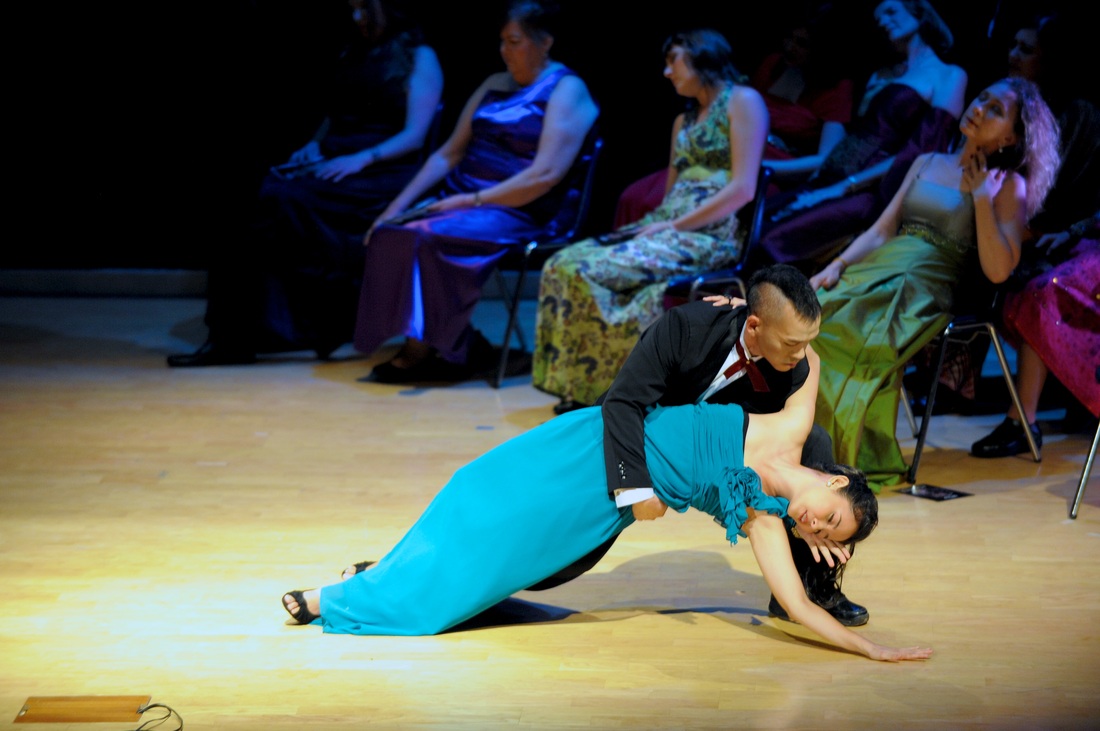
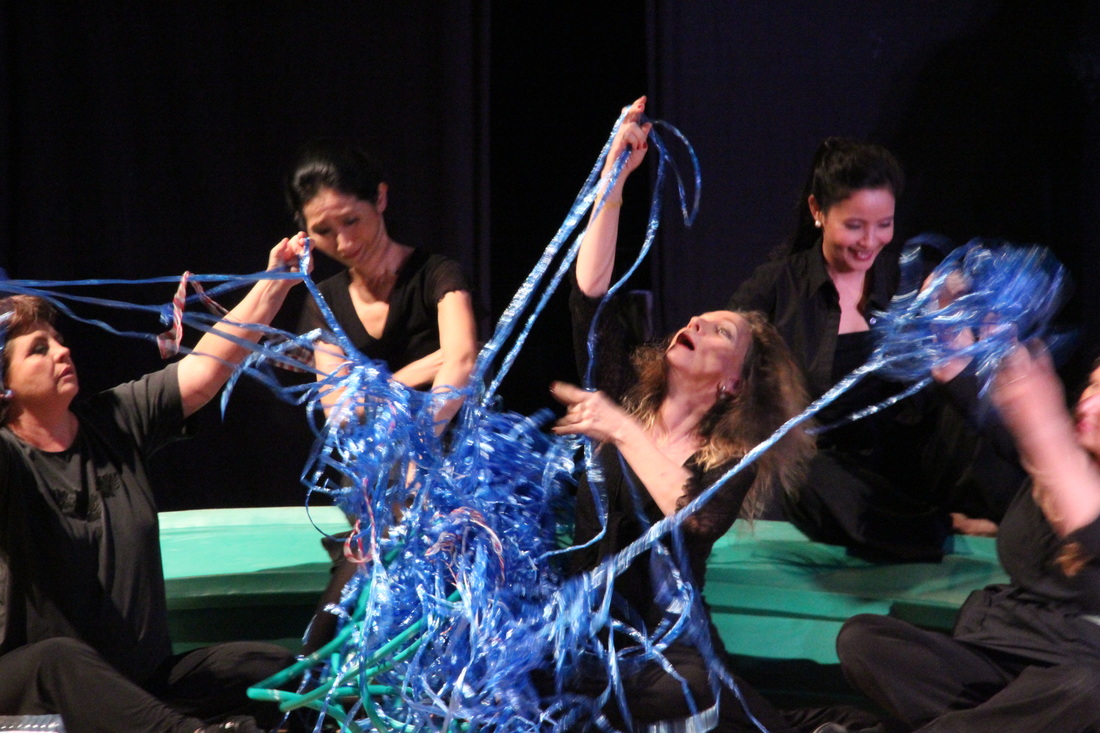
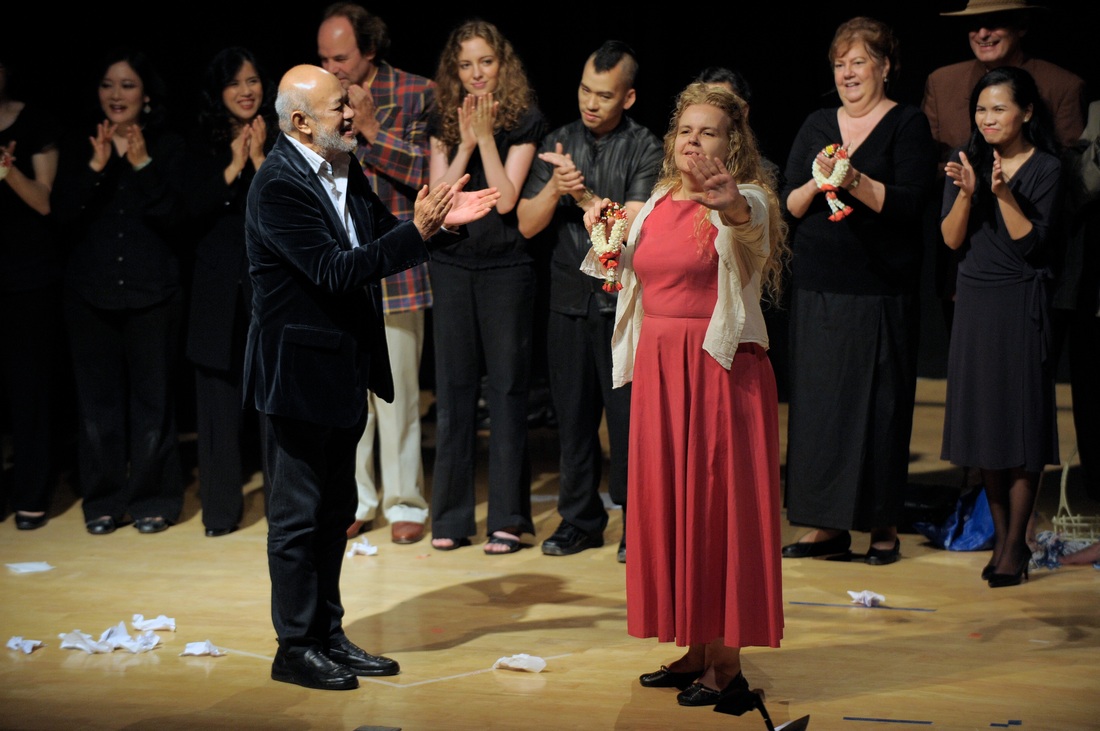
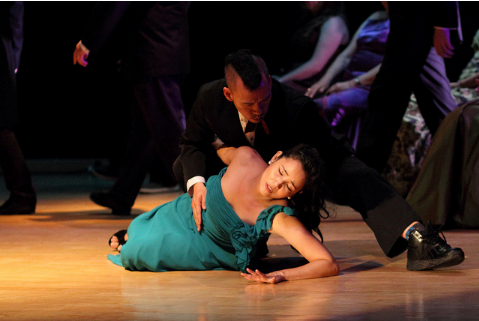
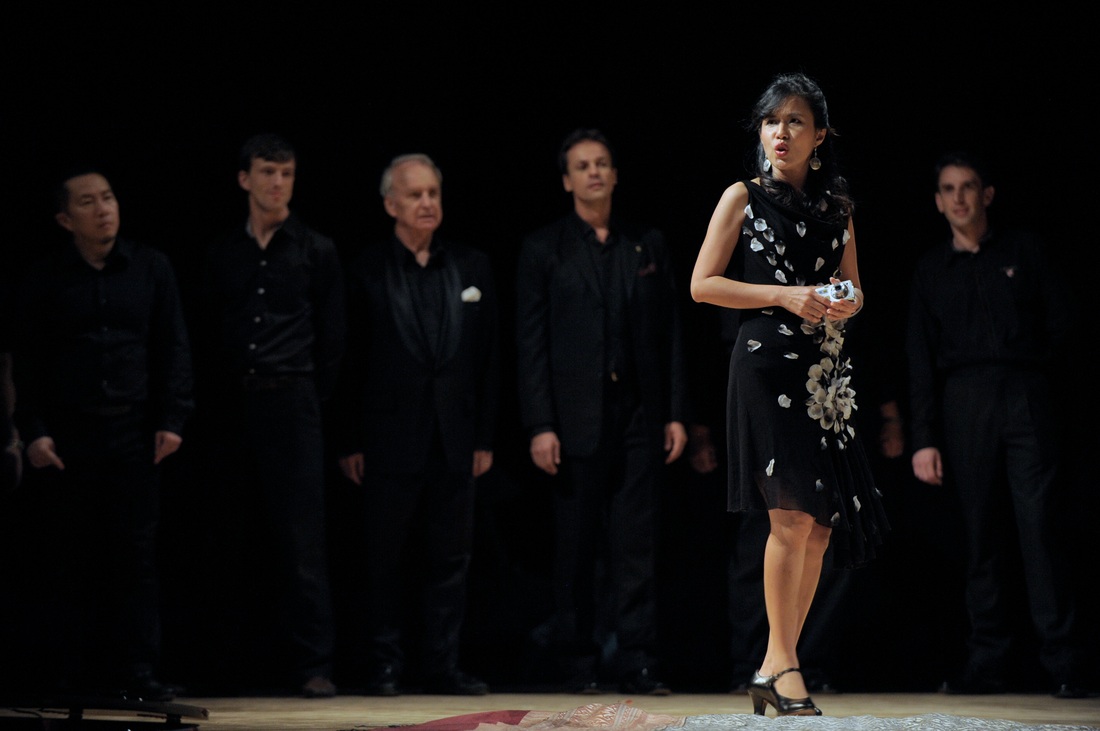
 RSS Feed
RSS Feed



